“Women’s struggle resembles a flower in the Middle East”
- The Moral Police arrested Mahsa Amini, 22, on 14 September, during the Tehran crossing. Originally from Rojhile [Eastern Kurdistan], he moved with his family to the city for a few days. Accused of not wearing the hijaba properly dressed, he was taken to the police station to carry out the “re-education”. He was wearing a hair steak outside the handkerchief, a young yellow offense. He was in a coma on the same day of detention and died on 16 September. According to the Iranian authority, he was the victim of a heart attack, while his relatives are clear that he has died from torture. The same view has taken over much of society, and cholera has protested many citizens. “I can say that the Islamic Republic of Iran is the largest protests that have taken place since its entry into force,” said Kurdish Maryam Fathi on 30 September. Since then, the protests have not stopped and have spread both in Iran and outside Iran. We met Fathi, a refugee from Rojhilate who lives in Bilbao, to learn more and first-hand about the situation. He is responsible in Europe for the Association of Free Women of Eastern Kurdistan (KJAR).

Mahsa Amin incarnated the two communities particularly punished by the Islamic Republic of Iran: she was a woman and a Kurdish. This factor weighs in everything that has happened and is happening, right?
Mahsa is not the first or last victim of the Islamic Republic of Iran, as many women have been killed since the protests began. But Mahsa, besides being a woman, was part of the Kurdish community. And it happens that in the forty years that he has been governing the Islamic Republic of Iran he has not managed to impose himself completely on the Kurdish community. Among other things, because the Kurdish is a politicised society, because it has a strong and organized movement of women, because it has a rich culture that has not managed to occupy Islam. Police patrols have therefore not been able to apply the same violence as in cities such as Tehera or Shira in the cities of Rojhilat [Eastern Kurdistan, at the borders of the Iranian state]. And when Mahsa's murder was discovered, the news sparked an explosion in the Kurdish community, provoked anger, irritation, anger.
Mahsa's family has a lot to do with everything that's going on. Many Iranian families do not denounce the murder of their relative for fear, especially so that they do not kill more children. Many young people are executed, many women are murdered, but these facts are not published. But Mahsa's brother, mother and father make the event public, appear on television and clearly state that they do not accept the state version. The government says Mahsa died of a heart attack, but doctors didn't say the same. His brother was able to see his sister and in his body he saw bruises caused by the violence he received during the two hours he was rolled up. The family decides not to remain silent and, by raising their voices, the people, all Iran, are protecting them. This is key in this whole story.
The people lift the murders of Amin. However, there are those who say that it was the drop that was missing to overflow the water. What's beyond irritation from Amin's death?
People are very irritated by the murder of Mahsa, but it is true that it has been the drop that was missing to overflow the water. Iran is a mosaic of nations, ethnicities and religions, but the Islamic Republic of Iran is a state of nation that occupies and colonizes many peoples: Kurdish, Azaria, Baluche, Arab, Guilaquia… Hence the conflicts that arise, on the one hand, because peoples fight for their autonomy. But then there is the economic question. More and more of Iranian society is living below the poverty level, there is a huge class imbalance, most of it has difficulty living with dignity, and that also leads to conflicts. [By the breakdown of the 2015 Nuclear Chord] The economic hardships imposed by the West are not the only cause of these economic problems, but also by state policies and corruption. Moreover, during the 40 years of the mandate of the Islamic Republic of Iran, the struggle of women has not ceased, in addition to being an authoritarian and theocratic state with an ultra-religious mentality and ideology, which is eminently patriarchal. Reading the Iranian constitution, one can feel the hatred of the men and women who govern, towards everything that does not give birth to the male gender. In that hatred, boys and girls are getting educated, because in schools they are giving an absolutely chauvinist and sexist education.
"People say they don't have socks. They'll be free or killed."
With all this I would like to say that the Iranian State has not made progress, has not been accompanied by global progress towards the democratisation of peoples and countries. Even more and more is lagging behind in this direction, increasingly isolated. People can no longer cope with this situation. They have nothing to lose, so they've been out on the street. According to the data, Iran is the most executing country in the world, but it has also failed to take root the culture of fear, which is what it seeks through the violence it exerts. People go out in the street protesting, and even though the cops throw away, they're still outraged. The country has become a jail and people say it doesn't have a sock. They will be free or killed. That is what can be breathed into these recent Iranian uprisings.
The motto “Jin, Jiyan, Azadi!” of Kurdish women has been imposed in the protests. Symbolically, it's significant, right?
The Government planned to inadvertently bury Mahsa ' s body early in the morning. But people heard about it and they made a human shield to stop the burial being done at night. The next day, at Mahsa's funeral, the Kurdish women took off the veil "Jin, jiyan, azadi!" "Woman, life, freedom" is a phrase that Kurdish women have been repeating for years. This cry has been launched in the mountains of Kurdistan, in the Rojava revolution, in the fight against ISIS, in the fight against the Turkish fascist state … because that motto is a manifesto for them of life, of militancy. That moment of Mahsa's funeral was collected on video and as the video "Jin, jiyan, azadi!" spread. the motto was imposed in the protests of Tehran and the other cities and towns.
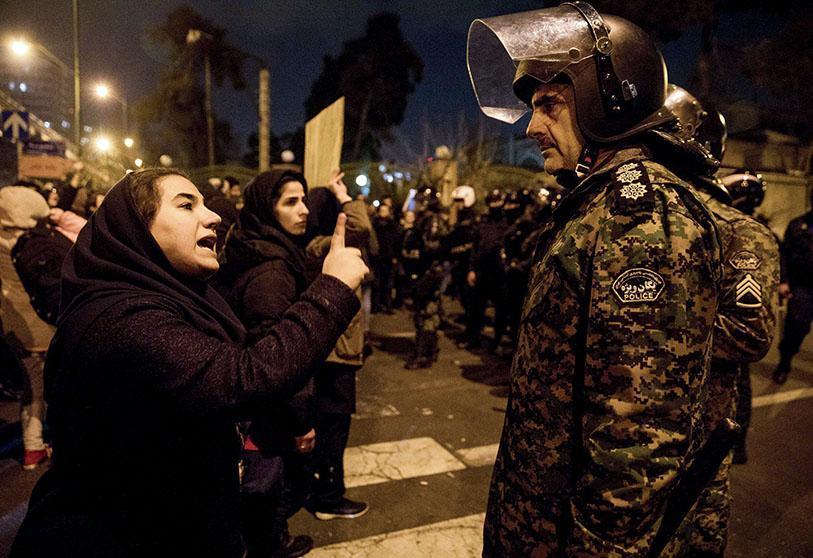
The events in Rojava were a milestone in the Middle East. These brave women who stood up for ISIS, who have been able to lead the project of democratic confederalism, have made people see democratic confederalism as an alternative. There are many propaganda against them, on the part of governments and some nationalist parties, who want more nation-states, do not want unity. In contrast, democratic confederalism offers individuals, communities and peoples the right to self-determination, but also unity. That is the proposal. Because we have diverse identities, towns and cities that bring together two or three ethnicities. Projects are needed to respond to this reality. The process that has taken place in Rojava has implemented the proposal of democratic confederalism, which has influenced it. Iranian women have looked at what has been done and since the Rojava revolution they have held various talks, meetings and meetings. Accordingly, projects for the democratic confederation are also under way in Iran. And this has to do with the cry of “Jin, jiyan, azadi!” all over Iran. It's as if the struggle of women sowed a flower in the Middle East. The message has been conveyed and collected in the form of hope. Those who shout “Jin, jiyan, azadi!” know where it comes from.
Is it therefore affecting the Kurdish struggle beyond Kurdistan?
These three words are magical! We regard the issue of women as central. The slavery of society began with the slavery of women, that's what we think. That is why we say that, as long as women are not free, neither in Kurdist nor any people will be free. Because if I am not free as a woman, what sense does it make to say that my people are free? By gender, sexual orientation, if I'm not a full person, there will be no life. Because under these conditions, life doesn't make sense. That is why Kurdish women understand every femicide, every case of male violence, as an attack on all women. And that motto means that. It is also nice for men to shout the slogan.
"Jin, jiyan, azadi!" What is happening with the motto shows us that this way of thinking has crossed the borders of Kurdistan. Of course, it has not happened randomly. The Kurdish women's movement has worked to make this happen."
What is happening with the motto shows us that this mentality has crossed the borders of Kurdistan. Of course, it has not happened randomly. The Kurdish women’s movement has worked to make this happen, especially since the 1990s. In those days, the movement made a turn: what was in principle a “Kurdish women’s movement” became a “Kurdish women’s movement”. The initial referred to the closed identity, and disseminated it so that any woman could be seen within that movement, regardless of their national, religious and thought identity. For example, it will be a year since the creation of the Democratic Transnational Platform for Women in Iran and Afghanistan. The platform brings together KJAR [Association of Free Women of Eastern Kurdistan], revolutionary women of the RAWA of Afghanistan, different organizations of the Iranian feminist movement… It has been the result of meetings and debates that continue over time. The platform is intended to put an end to the wars initiated by the patriarchate for power, to bring down the borders imposed by the patriarchate among us, such as the belief that Kurdish women must hate Persian women. We wanted, and we're in it, to undo those divisions. That being a woman is the reason for unity and then futures.
Images have been made showing women how to remove their jaw and how to smoke. In view of this, I have read some warnings about the importance of proper reading of these images. That what is in the spotlight is not Islam, but the ideological and political system underpinning the Islamic Republic. Confusing one thing with another can have consequences, such as polarization between Islamic protesters and not. Is that what we want to strengthen?
In 1979, coinciding with the constitution of the Islamic Republic of Iran, Khomeini, the Republic ' s leader and founder, said in his first public appearance that, from now on, women who go out to the streets without carrying the chanting will receive 74 sentences. With the formation of Parliament, various laws were created that harm women. Among others: men can marry four women and women cannot say anything; the testimony of two women has the same weight as that of one man; there is no law that protects women from male violence, and that leads to a great deal of violence; a woman cannot stand as a presidential candidate and cannot be a judge, or women are prohibited from access to certain studies. And I could continue to list similar laws one after the other. The school also distributes children according to gender. I remember how I started wearing the veil when I started school, because you can't get into school without the veil. We talk about 6-year-old boys and girls. That's not choice, it's not culture, it's repression. It is the religious, the power or the use of religion to achieve the possible objectives. It's misogyny, I hate women. That is why the veil in Iran is a symbol of repression towards women and society. And his knocking down and burning, claim.
"Burning the veil is not an anti-Islamic but anti-repressive gesture"
In recent years there has been a trend among Iranian women. On Wednesdays they would meet in public space, either on the roof of the house or in a desert valley, and when the veil was removed they would record the video saying that the veil was not their choice. For this action, several women have suffered repression: They have received 74 convictions, they have entered prison, they have been raped in it… Therefore, burning the veil is not a gesture against Islam, but against repression, against machismo and the patriarchal character of the Iranian State.

Another form of protest has been haircut.
In the Middle East, there's something cultural. When ISIS attacked the areas of the Yazidias, several women who survived cut off their hair to put them in the coffin of their deceased relatives. It is a gesture that expresses anger and anger. In the Kurdish city of Kermanshah, even in the case of a woman who died in protests against the murder of Mahsa, her 13-year-old daughter abandoned her self-cut hair in her mother’s casket. To do so, you have to feel terrible pain. In addition, in the case of Mahsa, the hair has great meaning, he was murdered for not bringing the veil “correctly” and bringing a strand of hair to the eye. Therefore, cutting hair as a protest means: “I don’t want this hair if I’m threatened with death by this hair.” A radical message is sent to the Government: “Goodbye, we’re not willing to keep quiet anymore.” It is absurd to kill, to imprison anyone for not wearing the veil properly dressed. It is absurd that you cannot decide to go out on the street with or without a ball. The woman is the only one who can make decisions about the body and that is the message that they are sending to the government.
The Government does not appear to be willing to make changes.
It has no intention of making democratic change. It has no intention of recognizing and respecting the rights of women, of peoples, of society. It does not intend to solve the country ' s social, political and ecological problems.
And do you see through mobilizations the possibility of effecting change?
There will be a change in Iran. Citizens don't expect any change from government, and if they've gotten up, it's because they want to. This may have its advantages and disadvantages. It may happen that the citizens are able to dispense with the government and establish a radical democracy, or that the events take place in a totally opposite direction: The repression of the Iranian state can silence the protests, or use the protests as a currency of exchange – in its game with the West in the face of nuclear weapons of use, or in the problems that Iraq, Syria and Lebanon have...
I believe there will be change. I think that the people of Iran are able to represent the government, but that, yes, we must be careful about the interests that may arise at international level. There was a risk of following the same path as Syria. With all that is about to happen, the risk of using the protests is very likely. But change is going to happen.
For better or for worse.
Change is not going to be negative. Is it possible that we do not achieve everything we want? Yes. But I think change is not going to be bad. By wearing the veil “badly dressed” they make feminicide… I think you can’t go wrong. That was the worst thing that could happen, and it's happened. Giving a direction to what comes will depend on our capabilities. I am abroad, I can be your voice, but I cannot do anything else. But it is important to organize the people who are in Iran to be able to overcome both international interests and the misogynic and ultra-religious government.
That's in Iran. And in Rojhilat? Do you see any possibility of change?
Kurdistan will test everything that happens in Iran. As we have done in Rojava, as has been done elsewhere. Kurdistan is able to make a change. Indeed, of all the peoples of Iran, only in the case of Kurdistan can I say that they have the capacity for change, at least at the moment. If anything were to happen, they would be able to establish democratic self-government. In the case of the others, I cannot guarantee anything.
"Just as in Kurdistan it is capable of self-organizing, it can help the Iranian peoples to build democratic confederalism"
In Kurdistan in Iran, work has been done for years at the political level, at the training level. Clandestinely, but gradually. It has always been a living people, it has a long history of street fighting and strikes. The Kurdish people are the ones who least fear me, even if they are the ones who suffer the most repression, even if they are the ones who suffer the most. But I know that Kurdistan has a political movement capable of organizing the country, and I know that autonomous women's organizations are capable of leading, of being avant-garde and of effecting change. But others worry me, because they don't have the luck we have, because they lack the libertarian and left-wing line that is so strong in Kurdistan. At the same time, however, that Kurdistan is capable of self-organizing, it can help the Iranian peoples to build a democratic confederalism.
I assume that the Iranian Government has begun to attack the Iraqi bases of Kurdish guerrillas, largely because that is what concerns. If I am not mistaken, at least thirteen people have been killed.
Yes, that is precisely why they are bombing the Kurdistan mountains, the border between Iran and Iraq. Here are the guerrillas of Rojhilate. But in the camps that have been bombed, not only are there political leaders, there are more people living there, there are also children. They've also bombed a school. Some people have already been wounded and murdered, and most are not peshmerga ["Kurdish gudari"].
Turkey does the same by starting to bomb Iran, although Turkey is constantly doing so. But it's proven the situation, because if you attack the movement in different directions, you attack it with more capacity.

So I did not ask you, and would you like to express it?
More than ever, Iranian citizens need solidarity. They need the solidarity of all the feminist members, anarchists, socialists, leftist parties… who are fighting for a better world. That the classical mindset that there are two blocs, one imperialist and one anti-imperialist, is not, please, the reason for not raising the voice and not showing protection.
I'm reading a lot of messages that excite me on Twitter. A lot of people I knew before they went out into the street said that if they didn't come back, please, they would follow the [shocked] fight. And there are those who haven't come home. At least, let those killings have some result. But that is why solidarity is essential, because in the rest there is only the people of Iran. The protests continue largely because they know the world is paying attention to them.
Gezurra badirudi ere, irudia ez dago Tolosako inauterietan eginda. Munduko herrialderik jendetsuenen artean, laugarrenean da, pasa den astean. Kameraz inguratuta, bi gizoni 80 eta 85 zigorrada eman dizkiote bizkarrean. Haien bekatua: gorputzaz elkarrekin gozatzea. Aceh... [+]
Luxorren, Erregeen Haranetik gertu, hilobi garrantzitsu baten sarrera eta pasabide nagusia aurkitu zituzten 2022an. Orain, alabastrozko objektu batean Tutmosis II.aren kartutxoa topatu dute (irudian). Horrek esan nahi du hilobi hori XVIII. dinastiako faraoiarena... [+]
AEB, 1900eko azaroaren 6a. William McKinley (1843-1901) bigarrenez aukeratu zuten AEBetako presidente. Berriki, Donald Trump ere bigarrenez presidente aukeratu ondoren, McKinleyrekiko miresmen garbia agertu du.
Horregatik, AEBetako mendirik altuenari ofizialki berriro... [+]
Andeetako Altiplanoan, qocha deituriko aintzirak sortzen hasi dira inken antzinako teknikak erabilita, aldaketa klimatikoari eta sikateei aurre egiteko. Ura “erein eta uztatzea” esaten diote: ura lurrean infiltratzen da eta horrek bizia ekartzen dio inguruari. Peruko... [+]
Otzandu egin gara, katalanak eta euskaldunok, ekaitzaren ondoren. Saiatu ginen, bai; sendo ekin genion, eta gogor kolpatu gaituzte; ezin izan genien gure helburu zuzen, ezinbesteko, sakratuei eutsi. Eta porrotaren mingostasuna dastatu dugu, eta bigundu egin gara irabazleen... [+]
Urtea baino gehiago da Olatz Simonek –EITBko berriemailea Parisen, garaian–, orrialde hauetan bertan ohartarazi zigunetik Bruselak kazetariari lanbideaz erakusten dionaz. Eta halaxe joan gatzaizkio galdezka Amaia Portugali. Bruselan gure irrati publikoak duen... [+]
Directa hedabidearen ikerketa batek ondorioztatu du 2018. eta 2020. urteen artean murgildu zela Kataluniako Palestinaren aldeko eta ezker independentistaren mugimenduetan, "Belén Hammad" izenaren pean. Nortasun agiri faltsu batekin Kataluniako Gobernuak... [+]
Ursula Von der Leyen Europako Batzordeko presidenteak Europa berrarmatu plana aurkeztu du, kontinentea "erresilientea eta segurua" bihurtzea xede duena. Bost zati ditu planak, eta estatu kideek 150.000 milioi euro jasoko dituzte mailegutan. Arau fiskalak moldatuko... [+]
2021etik 2025era isuriak %15ean murriztu behar zituen industriak. Ursula Von Der Leyenek automobilgintzaren sektorearen eskutik ekintza plan bat aurkeztuko du martxoaren 5ean. Oraindik erabakia hartua ez badago ere, Europar Batasunak sektorearen eskaerak onartuko dituela diote... [+]
Trump/Vance eta Zelenskyren arteko sesio gogoangarriak, Europan behintzat, erabat isilarazi badu ere, bada beste mundu-parte batean bederen dezenteko harrabotsa harrotu duen burutazioa. Afganistango Bagrameko aire-basea berreskuratu nahiko luke Trumpek, bere lehen... [+]
Etxe Zurian edukitako liskarraren ostean, eskainitako laguntza "konponbide batera bideratuta" dagoela ziurtatu nahi du Trumpek. Zelenskiren arabera, Kievek bizirauteko aukera gutxi izango lituzke AEBen laguntza militarrik gabe.
Groenlandiar jatorriko 411 haur daude tutoretzapean Danimarkan, Gizarte Gaietako, Etxebizitzako eta Adineko Pertsonen Ministerioaren txosten baten arabera. Aitatasun eta amatasun froga psikologikoetan puntuazio baxuak lortzeko arriskua dute guraso groenlandiarrek, frogak ez... [+]
Abdullah Öcalan buruzagiak PKKri otsailaren 27an eskatu zion armak uzteko. Taldeak egin duen adierazpenean babes osoa agertu dio buruzagiari eta Öcalanek eskatutakoa betetzeko konpromisoa adierazi du.
Poliziaren eta manifestarien arteko talkek atxilotu eta zauritu ugari utzi dituzte ostiralean herrialdeko hiri nagusietan. Herritarrek gertatukoaren erantzuleak zigortzea eskatu diote gobernuari, ez baita oraindik istripuaren inguruko epaiketarik ireki. Greba orokorra deitu... [+]
Hala iragarri du Keir Starmer Erresuma Batuko lehen ministroak Londresen eginiko goi bileran. Etxe Zurian Trumpek Zelenskiren aurka egin ostean, izandako eztabaidaren aurrean, Europako buruzagiek babesa adierazi diote Ukrainako presidenteari.








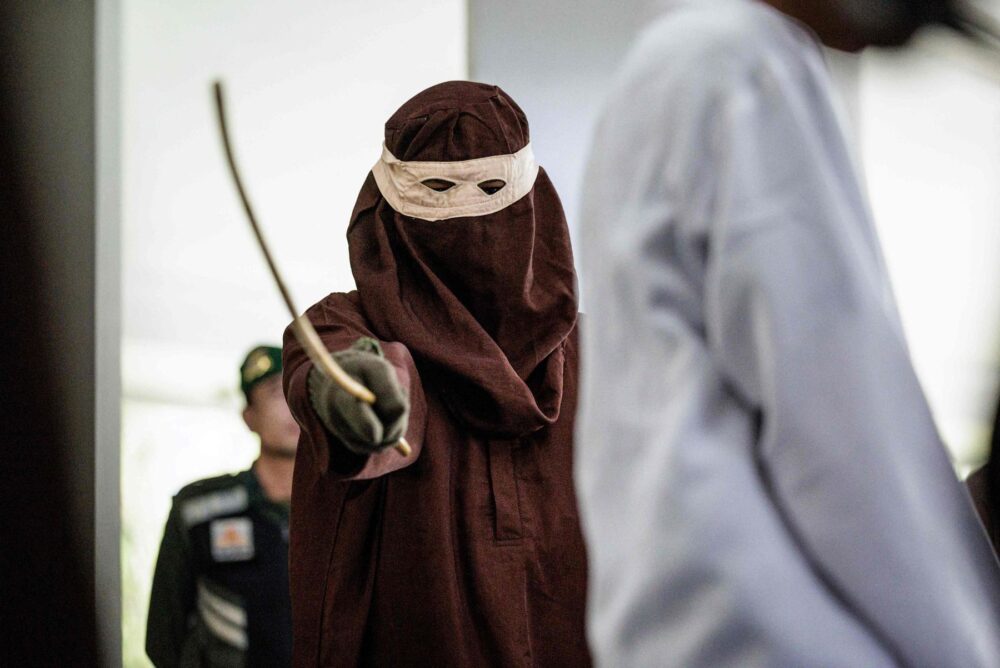



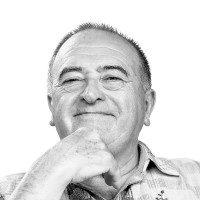

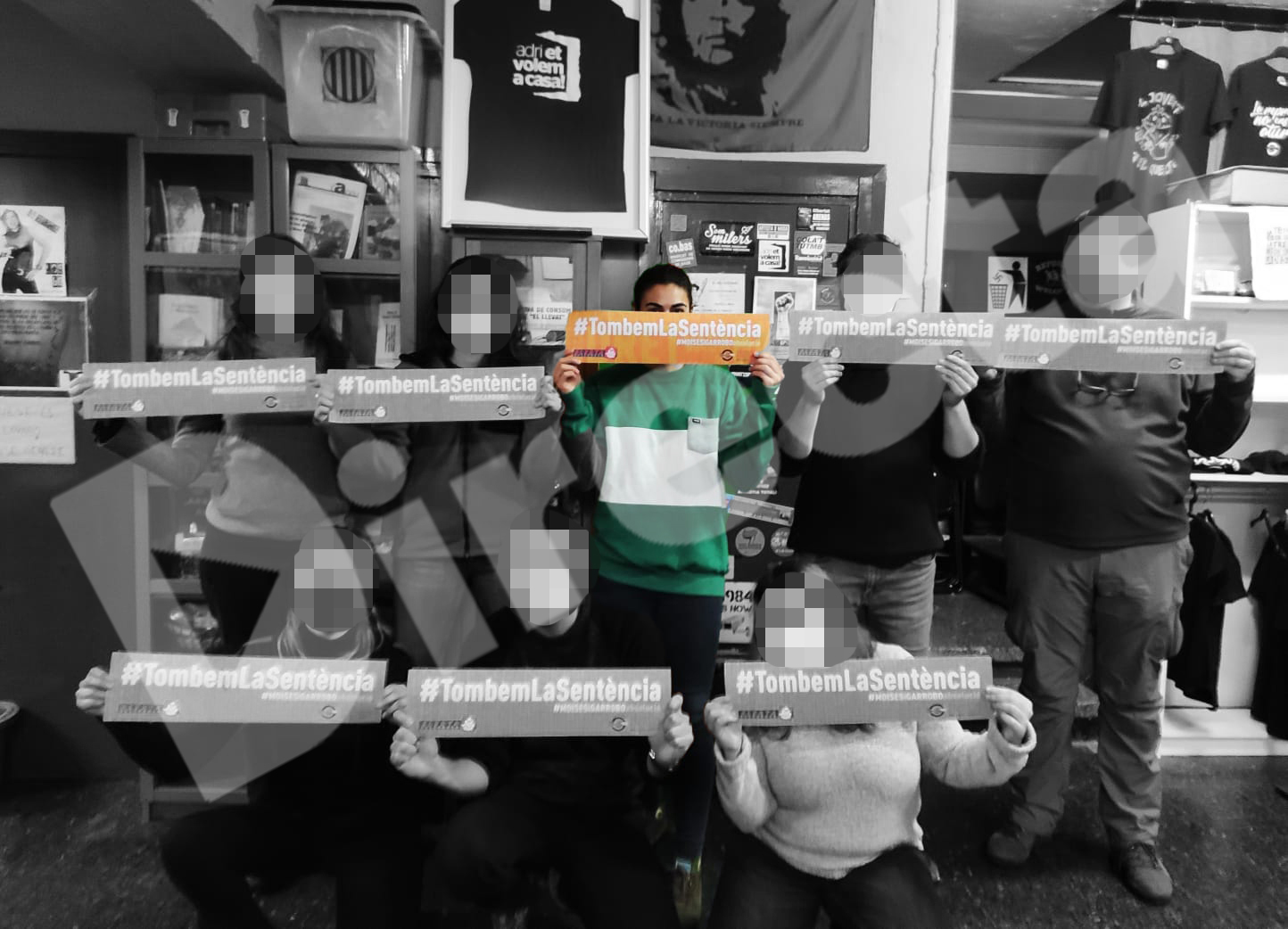

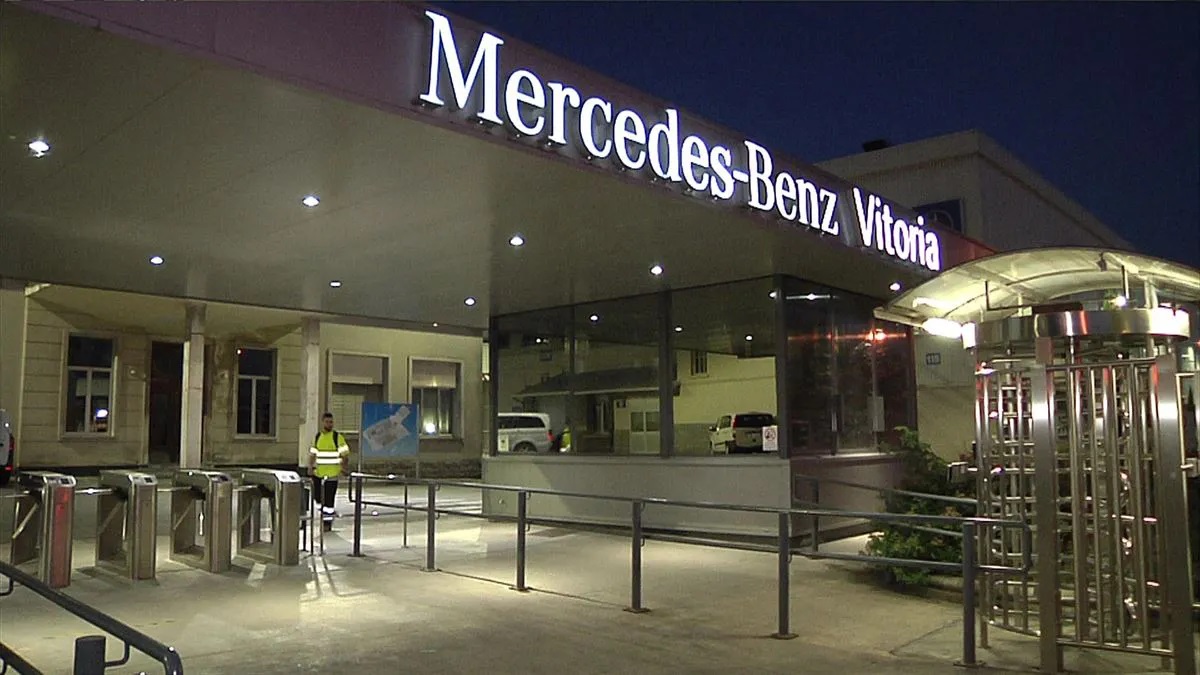
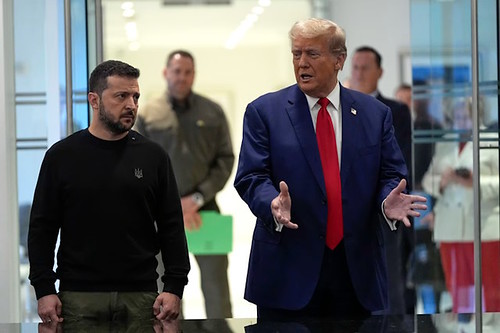
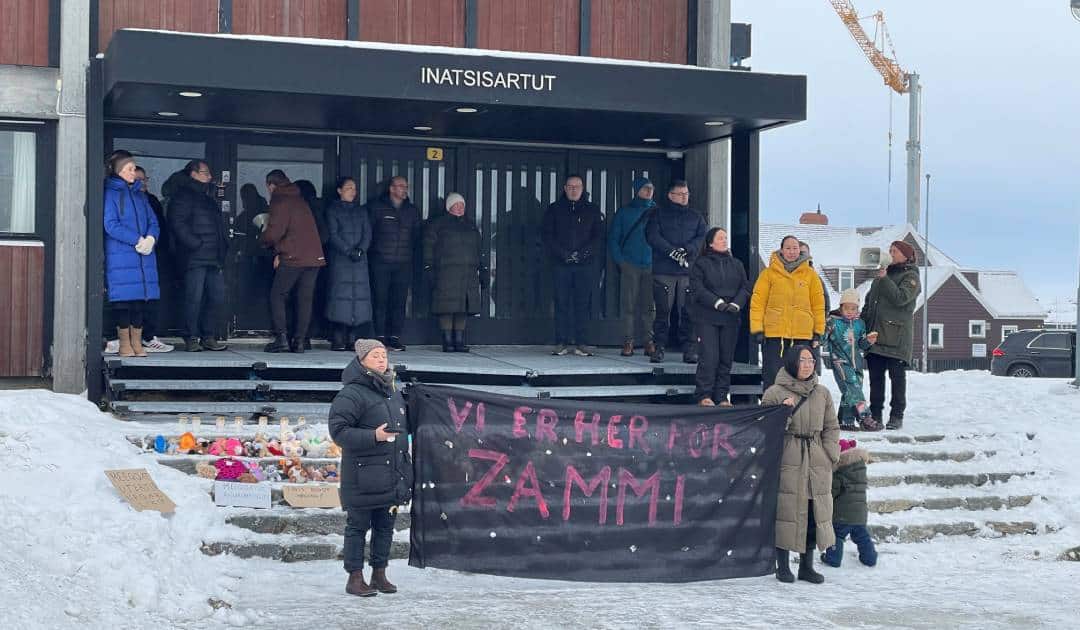


.jpg)